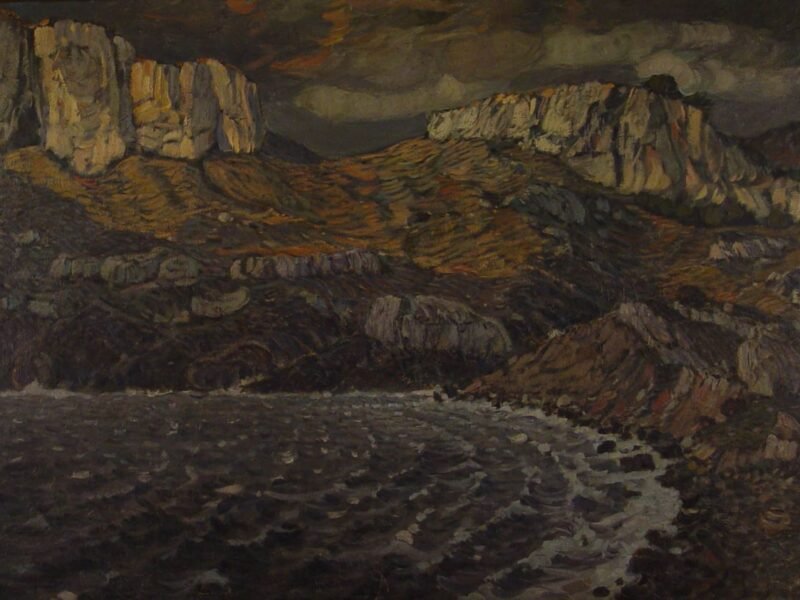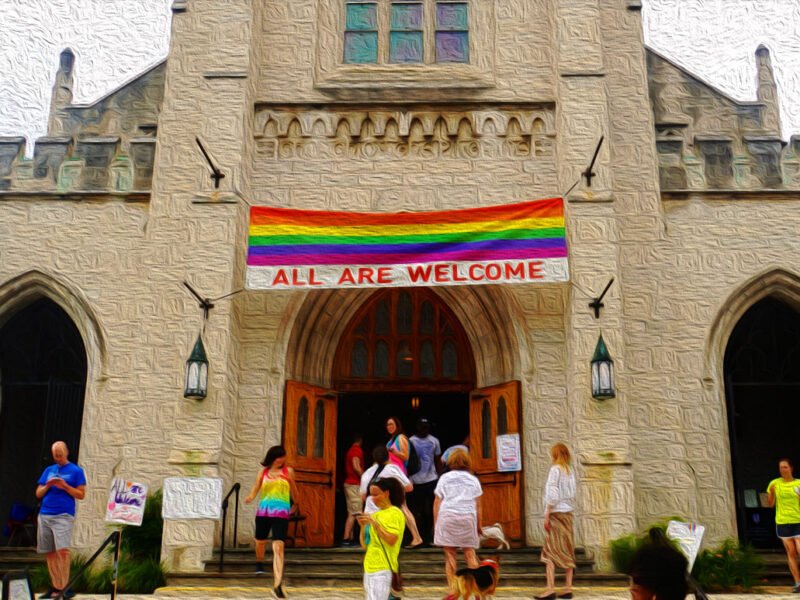So far, it’s been nearly 7 weeks of quarantine and social distancing. I have not attended church since March 8th. Lent felt strange and dry and even Easter has continued to feel off. This time has been one of unemployment, restiveness and an odd sense of stillness and waiting, as if life has been put on hold.
As of this moment, nearly 63,000 Americans have died and nearly 1 million have contracted the coronavirus (over 228,000 have died worldwide, the total worldwide number is likely much larger due to underreporting). This has lead to massive restrictions creating economic hardship for millions as the disease has reduced economic activity to a standstill.
The Church is not immune from the disease or the restrictions. These measures have ranged from shutting down gatherings to enforcing social distancing in church which makes normal Christian life impossible for the moment. Naturally we chafe under these, but it leads to an important question, “What obligations do we have as Christians in a time of disease?”
I’ll attempt to answer this in two ways; our obligation as the Church and our legal obligations under American law. I will admit I am not a professional theologian or lawyer (then again, a lack of professional knowledge has rarely stopped any American from opining on a difficult subject) but I think the lessons of history are fairly clear: we have a Christian obligation to obey mandates to contain the virus, including suspensions of church services.
The Common Good is a Spiritual Obligation
The Bible makes it clear that we have an obligation to worship God (Matthew 4:10) and an obligation to attend weekly worship (Hebrews 10:24-25), with all that entails. However we also have an obligation to serve our neighbor (Mark 12:31, Matthew 25:40). What are we to do if our meeting potentially threatens the lives of our neighbor, in particular the elderly and the immunocompromised?
Thankfully we have the lessons of Christian history. We are not the first generation of believers faced with terrible disease. Since time of Saint Cyprian, we have dealt with plague and pestilence. At times, Christians have temporarily suspended gathering in order to better serve our neighbor.
Periodic pandemics, in particular the plague, were common in the medieval and early modern world. Routinely churches would suspend services in order to avoid spreading the disease. To combat the plague, Pope Alexander VII implemented drastic measures:
Not only the civil communities […] but also the sacred ones were abandoned, namely, the pontifical chapels, the usual processions, the pious congregations, the solemnity of the offices in churches; closing those extraordinary festive occasions much loved by a lot of people.
Similarly when Italian cities were hit in 1576, the Archbishop of Milan cancelled pilgrimages and implemented strict social distancing measures during various church activities.
These measures were not restricted to Roman Catholic Italy. In Protestant England, church authorities restricted church activity in response to the routine plague outbreaks. In some parts of England, church services were entirely suspended until the disease ended.
Possibly the most direct advice comes to us from English Puritan Richard Baxter. In his immense Christian Directory he answers the question of whether we should obey a government that closes our churches. His answer would surprise many modern Christians:
Question CIX: May we omit church assemblies on the Lord’s day, if the magistrate forbid them?
Answer:
1. It is one thing to forbid them for a time, upon some special cause, (as infection by pestilence, fire, war, &c.) and another to forbid them statedly or profanely.
2. It is one thing to omit them for a time, and another to do it ordinarily. . .
(1.) If the magistrate for a greater good, (as the common safety,) forbid church assemblies in a time of pestilence, assault of enemies, or fire, or the like necessity, it is a duty to obey him.
1. Because positive duties give place to those great natural duties which are their end: so Christ justified himself and his disciples’ violation of the external rest of the sabbath. “For the sabbath was made for man, and not man for the sabbath.”
2. Because affirmatives bind not ad semper, and out-of-season duties become sins.
3. Because one Lord’s day or assembly is not to be preferred before many, which by the omission of that one are like to be obtained.
Baxter’s theology is on strong biblical ground. For starters, we have obligations to obey the earthly authorities (Romans 13:1-8, 1 Peter 2:13-17). Secondly, our obligations for weekly worship are not meant to be heavy burdens on us, to the point of potentially threatening lives (Mark 2:27).
American Christians in particular were not unfamiliar with this unfortunate necessity. Churches would occasionally shut down in response to local smallpox epidemics. Most notably churches saw mass temporary closures during the influenza epidemic in the 20th century. Our history does not teach us to despair, rage against our restrictions and insist upon our “liberty” to do what we wish. Our history teaches us to pray, to provide for the poor and the sick, and to wait patiently.
Our Legal Obligations
The second question is, “Are temporary church closures legal?” After all, U.S. law enshrines a free exercise of religion in our very first amendment to the Constitution. Furthermore, local governments do have the power to restrict public meetings for the sake of the public health (Globe School District No 1 v. Board of Health of City of Globe). The most famous case is Jacobson v. Massachusetts (1905), giving state governments wide authority to implement laws for the sake of the public health.
This then begs the question, “Does the free exercise of religion have any limitations?” The key court case was addressing this is Employment Division v Smith (1990). In this case, the Supreme Court had to decide whether laws denying public benefits to those who broke Oregon’s narcotics law would have exemptions on the basis of free exercise (the individuals in question had used peyote, a known narcotic, historically used by Native Americans in religious practices). Justice Antonin Scalia, hardly some progressive jurist or anti-religion activist, summed up the Court’s position:
We have never held that an individual’s religious beliefs excuse him from compliance with an otherwise valid law prohibiting conduct that the State is free to regulate. On the contrary, the record of more than a century of our free exercise jurisprudence contradicts that proposition. As described succinctly by Justice Frankfurter in Minersville School Dist. Bd. of Educ. v. Gobitis, 310 U.S. 586, 594-595 (1940), “Conscientious scruples have not, in the course of the long struggle for religious toleration, relieved the individual from obedience to a general law not aimed at the promotion or restriction of religious beliefs. The mere possession of religious convictions which contradict the relevant concerns of a political society does not relieve the citizen from the discharge of political responsibilities.”
We first had occasion to assert that principle in Reynolds v. United States, 98 U.S. 145 (1879), where we rejected the claim that criminal laws against polygamy could not be constitutionally applied to those whose religion commanded the practice. “Laws,” we said, “…are made for the government of actions, and while they cannot interfere with mere religious belief and opinions, they may with practices. . . . Can a man excuse his practices to the contrary because of his religious belief? To permit this would be to make the professed doctrines of religious belief superior to the law of the land, and in effect to permit every citizen to become a law unto himself.“
Subsequent decisions have consistently held that the right of free exercise does not relieve an individual of the obligation to comply with a valid and neutral law of general applicability on the ground that the law proscribes (or prescribes) conduct that his religion prescribes (or proscribes).
While it seems there are lawsuits to challenge local laws, it seems highly unlikely the Court will reverse years of precedent agreed upon by justices of different judicial philosophies. Laws and guidelines on the books now almost certainly pass the strict scrutiny test (the law must further a compelling government interest and must be narrowly tailored). I am not a lawyer and am willing to be corrected, but it seems like these challenges are largely baseless. The fact that the US 5th Court of Appeals upheldTexas’ lockdown measures in April (based on Jacobson v. MA), makes me think any legal challenge would be futile.
Conclusion
Looking at historic Christian practice, teaching, and American law, the issue seems fairly straightforward: we should not resist when the government passes measures to contain the pandemic. In particular, pastors and leaders should not incite Christians with inflammatory hysterics. Antics like defying social distancing and then parading around your court-imposed ankle monitor like a relic do not further the gospel. Pretending a re-opening plan is a form of persecution does not make you a martyr, nor does it authorize you to set yourself up as faux-authority and make law unto yourself. All it does is make the Church look foolish in the sight of the world and threatens the health of our vulnerable parishioners.
This is not to say we should simply despair at home and do nothing. A call to bear this trial with patience is not a call to inaction. St. Dionysius of Alexandria recounts how we ought to conduct ourselves:
Most of our brother Christians showed unbounded love and loyalty, never sparing themselves and thinking only of one another. Heedless of danger, they took charge of the sick, attending to their every need and ministering to them in Christ, and with them departed this life serenely happy…
The fact we cannot fully enjoy worshipping together, attending church and partaking in the sacraments does not mean we should be idle. There are opportunities to give our time, our resources and to care for others. In the meantime we should be praying and virtually attending church as we can (a luxury not afforded to believers in past outbreaks).
The coronavirus pandemic hardly seems like a time to rail about our liberties. This isn’t merely a flu but rather a terrible pandemic that has killed tens of thousands and could kill much more. The pandemic has targeted “the least of these,” in particular. We can and should rise to the challenge, rather than spreading panic about “socialism” or some spectre of religious persecution.
This piece originally appeared over at Musings on the Right.






'Obligation in the Time of COVID19' has 1 comment
May 9, 2020 @ 6:57 am David Virtue
I thought this was an excellent, sane post and I hope to repost on Virtueonline. The conspiracy theories floating around the internet about loss of freedom and so much more have excited passions on the right (mostly) and occasionally on the left. Your article is an excellent balance and reminds me of what life must have been like in the First Century history of catacomb Christian worship. Thank you.